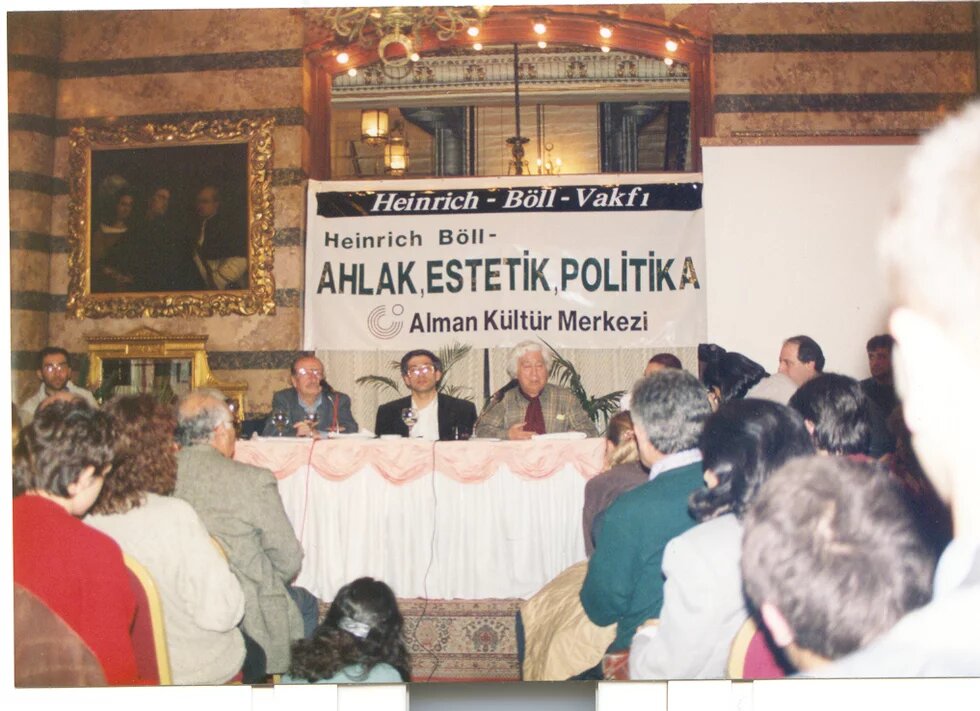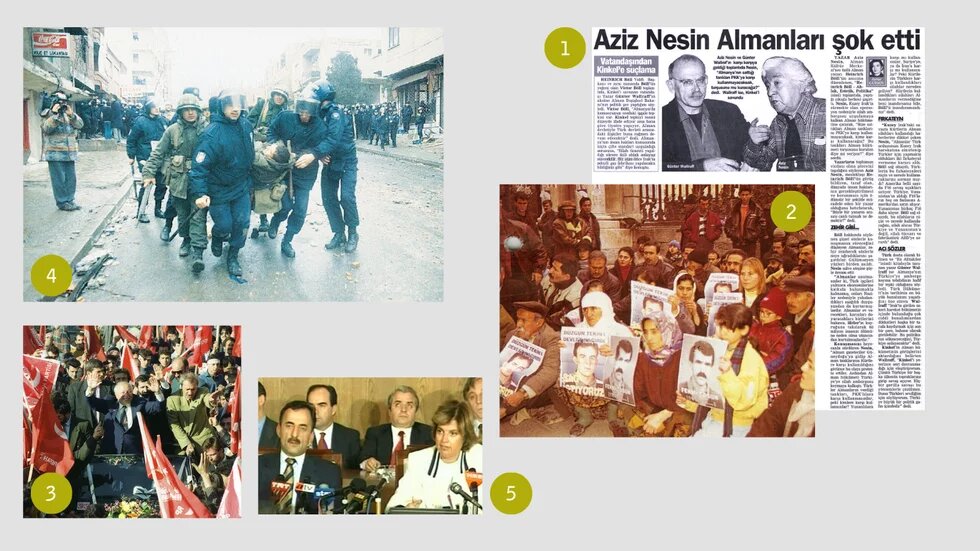
1995 was a year of intense debate and intellectual exploration concerning rights and the Kurdish question.
Human rights defenders and relatives of the disappeared gathered at Galatasaray Square for the first time, launching Turkey’s longest-running civil disobedience campaign against enforced disappearances. The feminist magazine Pazartesi reached its readers, and Açık Radyo began broadcasting with the slogan "Not private, just free and independent." Despite ongoing human rights violations, for perhaps the first time in its history, the country engaged in open and public discussions about religious beliefs, sects, and ethnic origins.
In this spirit, a panel discussion was organised in honour of the writer Heinrich Böll, the namesake of the Heinrich Böll Stiftung.
As a new millennium dawned, the discussion centred on ethical, aesthetic, and political questions essential for coexistence. What was the responsibility of writers and intellectuals in this new era?
This gathering marked the first significant event the Heinrich Böll Stiftung Turkey hosted.
The event garnered significant attention, primarily due to the participation of Aziz Nesin, one of the most prominent living writers at the time who had narrowly escaped death during the Sivas massacre, and Orhan Pamuk, who would later be awarded the Nobel Prize in Literature. Other notable figures who took part in the panel included Şara Sayın, Mehmet Tali Öngören, Gürsel Aytaç, Günter Wallraff, and Osman Okkan. The third person in the photo, delivering the opening speech, was Viktor Böll, the head of the Böll archive at the Heinrich Böll Stiftung, which was then establishing its current structure.
The meeting was well-attended, and the discussions were wide-ranging. The initial focus on critical literary attitudes inspired by Böll shifted when Aziz Nesin took the stage. Nesin raised the issue of arms sales between Germany and Turkey, criticising the arms embargo debate in Germany aimed at preventing the use of German-sold tanks against the Kurds. Following Nesin, Pamuk argued that writers should distance themselves from dogma and challenge the sanctity of established texts.
The panelists engaged in open and candid exchanges, sharing various perspectives. The contentious embargo debate, rather than the broader themes of social responsibility, free expression, and dialogue, dominated the headlines the following day.
1 – A clipping after the first public event of hbs İstanbul office. (hbs) 2 – The Saturday Mothers, whom Çiller had referred to as “They will sit down and go away,” in front of Galatasaray High School in 1996. (Besna Tosun) 3 – The Welfare Party secured first place in the 1995 general elections, receiving 21.7 percent of the vote. (Yeni Akit) 4 – In March of that year, 22 people lost their lives during the incidents that erupted in the Gazi neighborhood. (Sözcü) 5 – Then-Prime Minister Tansu Çiller with Murat Karayalçın, the then-leader of the CHP and the new coalition partner. (Yeni Şafak)
